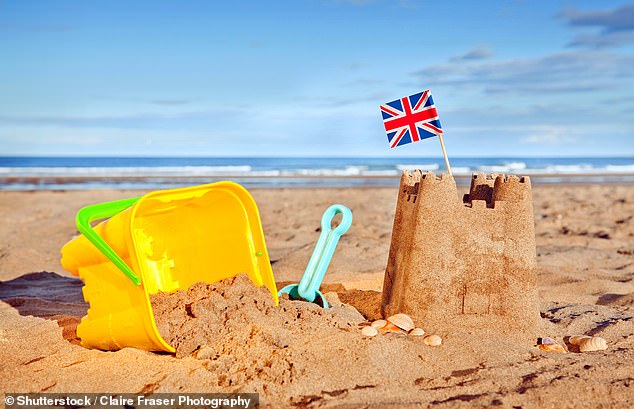Fresh sea air and occasional sunshine may be the main draw of Britain’s coastal towns, but they have also become a hotspot for entrepreneurship.
Coastal towns such as Felixstowe, Bournemouth and Sidmouth are among the fastest growing areas for UK micro businesses, which have fewer than 10 employees.
GoDaddy’s Venture Forward report mapped more than 600,000 businesses across Britain to find each area’s “microbusiness density” per 100 residents.
Pearl in the sand: British coastal cities are a hotbed of entrepreneurship
The Suffolk Coastal area saw a 54 per cent growth in its concentration of micro businesses over the past year, more than ten times the national average of 5 per cent.
The number of small businesses registered in the UK last year hit a record high, according to data published by the Office for National Statistics.
In 2023, a total of 859,007 companies were registered, an increase of just under 75,000 compared to the previous year.
Andrew Gradon, director of GoDaddy UK and Ireland, said: “The UK small business community is in good health and we have seen growth in micro business density across most of the country.
«Many iconic coastal cities have been at the center of this boom.
“The trend is particularly pronounced in the south of England as people have moved out of London post-Covid.”
Bournemouth West, which grew by 29 per cent, East Devon and Bexhill and Battle, both up 23 per cent, also outperformed the national average.
Meanwhile, micro businesses on the Isle of Wight, Totnes and Portishead grew by more than 13 per cent, while St Austell and Newquay grew by 11 per cent.

Catherine Hickman launched her skincare business in Felixstowe
Catherine Hickman, Felixstowe, is one of these coastal entrepreneurs and founded her organic skincare business, Botanical Fanatic, last year.
‘Felixstowe has a strong community spirit; People believe in shopping local and supporting small businesses. The craft fairs and markets in Felixstowe helped my business take off and in December I launched my website to support the next phase.
“My business continues to grow and I have just secured three local distributors to distribute my range of natural skincare products.”
However, a “coastal divide” between north and south is beginning to emerge, as towns in the north of England and Wales have not fared as well.
Blackpool South lagged the national average with growth of 2.7 per cent, while Scarborough and Whitby, Morecambe and Lunesdale grew by 2.1 per cent. Grimsby had a 1 per cent contraction in business growth.
The Valley of Clwyd, where Rhyl is located, also suffered, increasing its micro-business density by 2.7 per cent.
Gradon said: “With rapid advances in technology and tools to help entrepreneurs build websites quickly and efficiently, we expect the divide between the north and south coasts to begin to close in the near future.”


